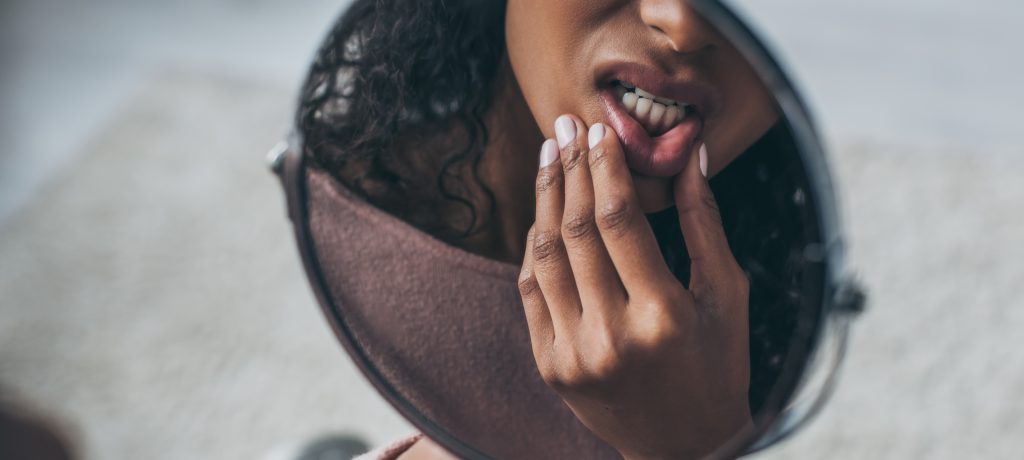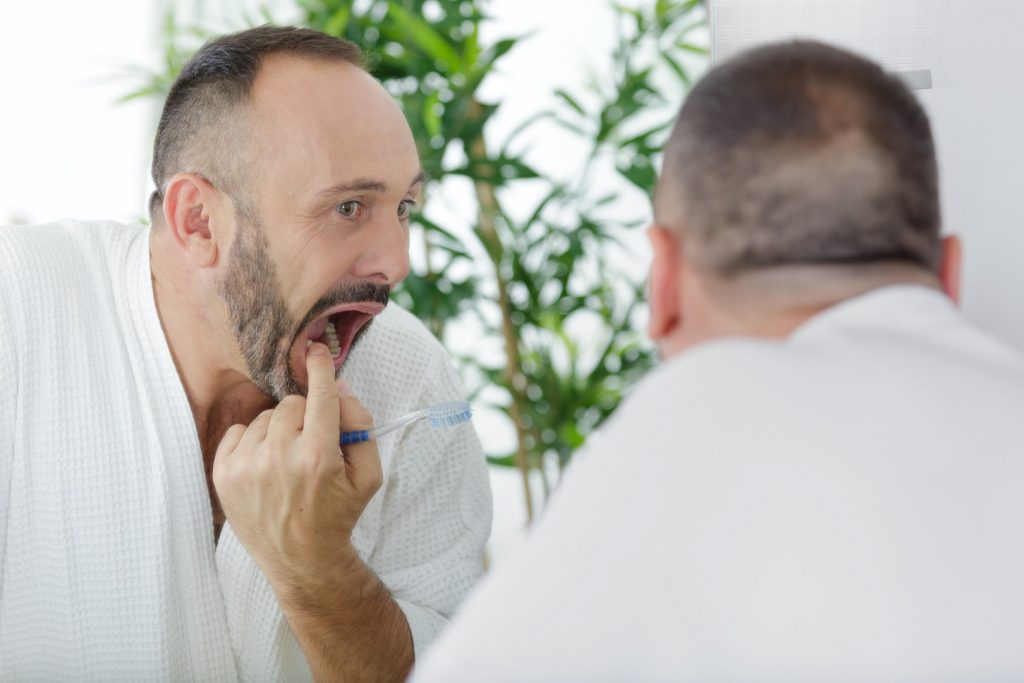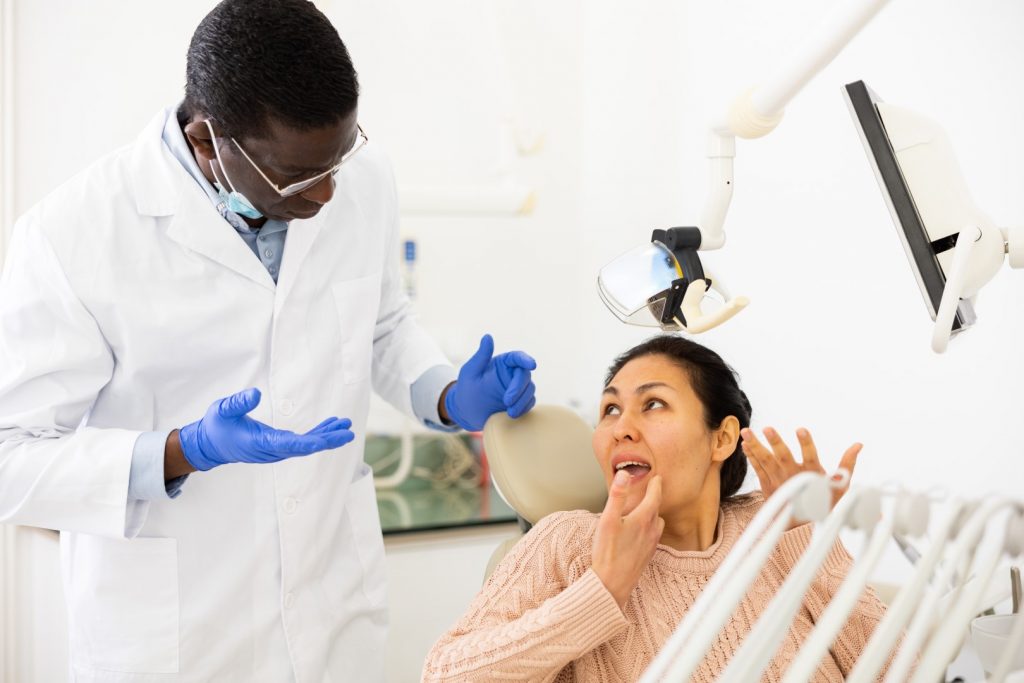Resource Library
Start Reading

You may have had an experience like this.
You’re brushing and flossing your teeth. You open your mouth and begin inspecting. At first glance, everything looks clean and normal. But then, a black spot on a tooth toward the back of your mouth catches your eye.
You wonder: Is that a black spot on my molar? Is it a cavity? Is something else wrong?
You do not need to panic. Black dots on teeth don’t always indicate a serious issue. Sometimes, spots on your teeth can simply indicate tooth discoloration.
On the other hand, scheduling a visit with a dentist as soon as possible is the prudent thing to do. Those black stains on your teeth may not be an immediate cause for concern. But they could be the first visible signs of dental trauma or tooth decay.
The professionals here at Penn Dental Family Practice (PDFP) will assess any black spots on your teeth, determine whether they warrant concern, and provide treatment to restore your bright, healthy, spot-free smile.
 A spot on your tooth does not always mean you have a cavity. You might have black spots on your teeth for several reasons.
A spot on your tooth does not always mean you have a cavity. You might have black spots on your teeth for several reasons.
A black or brown spot might indicate a cavity. But these dark surface stains can also be the result of what dentists call extrinsic discoloration or intrinsic discoloration.
In extrinsic discoloration, the tooth’s outer layer is stained.
Diet can play a large role in extrinsic discoloration. Some drinks that stain tooth enamel include coffee, tea, wine, and sugary sodas. Smoking can also make teeth appear more yellow.
In intrinsic discoloration, the discoloration or staining occurs on the tooth’s inner layer (the dentin).
Patients with intrinsic discoloration may have been exposed to too much fluoride when they were younger. They may have suffered permanent tooth injury at some point. Medications—especially those including tetracycline, used in treating bacterial infections and other medical conditions—can be another reason for intrinsic discoloration.
Age can also be an important factor in tooth discoloration. As we age, our teeth wear down, leaving the dentin, which has a naturally yellowish hue, more visible. Chips and cracks can occur as teeth weaken and can lead to discoloration or other dental problems.
 Whether the yellow, brown, or black stains on your teeth can be removed depends on what’s causing them.
Whether the yellow, brown, or black stains on your teeth can be removed depends on what’s causing them.
Consulting with a professional dentist about such spots—even a tiny black spot on your tooth with no pain—is critical. Don’t attempt to fix your teeth’s black spots on your own. Your dentist will determine the most appropriate course of action.
 Don’t keep wondering and worrying about those black dots on your teeth. Get your appointment with the expert dentists here at PDFP. You can request an appointment online now or call our office at 215-898-7337.
Don’t keep wondering and worrying about those black dots on your teeth. Get your appointment with the expert dentists here at PDFP. You can request an appointment online now or call our office at 215-898-7337.
Our dentists can evaluate your teeth, determine the cause of any dark spots on them, and explain the treatment options available to you.
Your treatment may involve our teeth whitening services. In-office teeth whitening removes stains through an oxidation process, which can significantly lighten and brighten your smile.
While in-office tooth whitening produces the best results, we also offer take-home trays for you to use at home when appropriate.
You may also be interested in downloading your free copy of our eBook, Teeth Whitening 101. It discusses the teeth whitening process, the results you can expect, and how to make your whiter and brighter teeth last as long as possible.